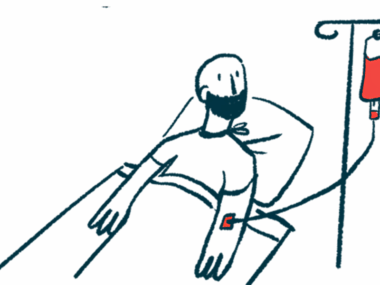Ultomiris now closer to being covered in Canada for treating gMG
New agreement starts process of listing therapy for public reimbursement
Written by |

Ultomiris (ravulizumab-cwvz) is now closer to being covered by public Canadian healthcare systems when used to treat adults with generalized myasthenia gravis (gMG) who are positive for antibodies targeting the acetylcholine receptor (AChR) — one of its approved indications in the country.
That’s according to its developer Alexion, AstraZeneca Rare Disease, which announced an agreement with the pan-Canadian Pharmaceutical Alliance (pCPA), an independent organization that conducts joint provincial-territorial-federal negotiations for both brand name and generic drugs in the country.
Both parties have agreed to sign a letter of intent (LOI) that will allow provinces and territories in Canada to begin the process of listing Ultomiris on their formularies, AstraZeneca announced in a company press release. Under the LOI, government healthcare may also cover the use of Ultomiris for certain adults with neuromyelitis optica spectrum disorder (NMOSD), another autoimmune disorder the therapy is also approved to treat.
“We would like to thank the pCPA for its partnership in recognizing the need for this important innovation for Canadians living with NMOSD and gMG,” said Karen Heim, vice president and general manager of Alexion Canada. “We look forward to our ongoing collaboration with provincial and territorial jurisdictions to finalize listing agreements and secure public reimbursement for patients and their caregivers.”
According to the release, the agreement marks “a critical step in ensuring adult patients living with NMOSD and gMG have public access to Ultomiris.”
gMG is a form of myasthenia gravis (MG) that’s marked by widespread muscle weakness and fatigue. The disease is driven by self-reactive antibodies that attack proteins involved in nerve-muscle communication, most often AChRs.
When self-reactive antibodies bind to their target, they can also activate a part of the immune system called the complement cascade. This cascade comprises several proteins that are activated in a series of sequential steps, ultimately leading to an inflammatory reaction that could further contribute to the damaging immune response seen in MG.
Ultomiris aims to block this inflammatory response by preventing a key step in the cascade of complement activation. This mechanism can also help ease symptoms in other autoimmune diseases, such as NMOSD.
Ultomiris approved in Canada in 2023, but still not reimbursable
Health Canada approved Ultomiris for adults with anti-AChR antibody positive gMG in 2023. Later that year, the regulatory agency approved the therapy for certain adults with NMOSD. However, public Canadian healthcare plans have not yet included coverage of the medication for these indications.
An LOI with pCPA is a key first step to this coverage. The alliance focuses on negotiating reimbursement of therapies for publicly funded healthcare across the country. However, the LOI doesn’t guarantee coverage by all health plans, and different provinces and territories may follow different timelines.
“The … pCPA decision marks a key milestone in access to [Ultomiris], offering patients with generalized myasthenia gravis a targeted, evidence-based biologic therapy,” said Hans Katzberg, MD, a professor of medicine at the University of Toronto. “This agreement advances the treatment landscape and reflects a commitment to improving outcomes and quality of life for those affected by this chronic neuromuscular disorder.”
We look forward to seeing public drug programs list Ultomiris quickly and equitably across the country. It’s critical that our health systems reflect fairness and urgency in responding to the needs of those with rare diseases like MG.
Homira Osman, PhD, vice president of research and public policy at Muscular Dystrophy Canada, also noted that including Ultomiris in government healthcare may help address inequities in treatment access among people with gMG.
“Reaching this agreement is an important milestone in addressing the treatment gap for individuals with generalized myasthenia gravis,” Osman said. “We look forward to seeing public drug programs list Ultomiris quickly and equitably across the country. It’s critical that our health systems reflect fairness and urgency in responding to the needs of those with rare diseases like MG.”




Leave a comment
Fill in the required fields to post. Your email address will not be published.